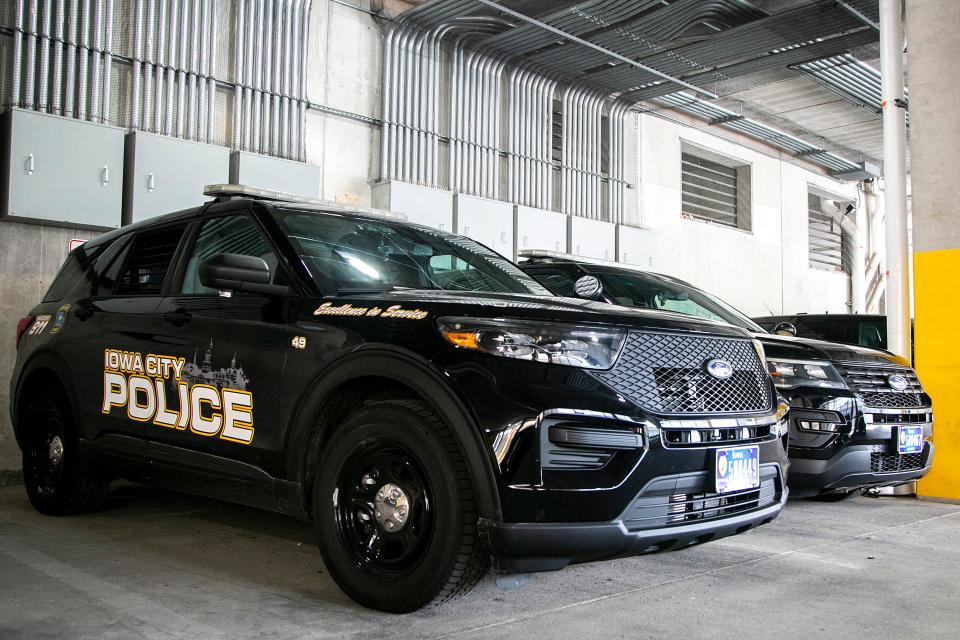Guest column: Trying to resolve our conflicting wishes for police
With the recent brutal killing of Tyre Nichols, the problem of hyper-aggressive policing, never long out of the news, leaps to the forefront again.
In each of the years from 2013 to 2018, police in the United States killed roughly a thousand people.
Writes Jill Lepore in the New Yorker, "American police are armed to the teeth, with more than seven billion dollars’ worth of surplus military equipment off-loaded by the Pentagon to eight thousand law-enforcement agencies since 1997."
Special armored vehicles offered to municipalities, like the MRAP armored vehicle used by the Johnson County Sheriff’s Department, are, far from being necessary complements to policing, likely provoke more resistance from the public and instill less confidence in the police.
At the same time, we cannot forget that American police face the most heavily armed civilian population in the world. This is no excuse for police brutality, but as a recent article also in the New Yorker shows, there is some new light to be shed on the tangled thread of police shootings from the perspective of police culture.
In 1989, David Kirkpatrick writes, several FBI agents conducted interviews with 50 convicted cop killers. They were hoping to understand threats to the police, but their research has been largely discredited. Their sample size was small, the subjects unreliable, and they had no baseline interviews with other criminals. The study, entitled “Killed in the Line of Duty,” though, was embraced by the Department of Justice, and “became engrained in the culture of American law enforcement.”
What qualities did police officers who ended up shot in the line of duty share, according to this study? “Friendly,” “tends to use less force than other officers,” “well-liked by community and department.”
You might imagine such qualities would be ones that would be encouraged to create good relations with the community, but the study had the unfortunate effect of convincing police officers that they needed to toughen up. The tendency for many became domination of those they interacted with, instead of service.
The study also gave the impression that pulling over citizens in their cars is a situation in which an officer is much more likely to be killed, though stats don’t bear this out. But many police began to approach pull-overs as a life-or-death proposal. You can see how such a mentality might aggravate a situation.
By the way, according to Kirkpatrick’s research, pretextual stops — pulling over cars on a hunch that they might contain drugs or guns — is basically ineffective as well as alienating to citizens.
I believe that the more police see themselves as an integral part of the community, working in cooperation with other members, the better. This is why community policing — cultivating relationships — works pretty well. After all, the word "police" comes from poli, Greek for city, and Latin for citizenship.

We want our police to be brave, but we also want them to be compassionate and understanding. Many of us understand the impossible asks we make of the police. Police often step in when other systems fail — education, mental health, social services, the workforce. And, like it or not, police are a mirror of the society at large.
There is racism in our society, and racism exists among some members of the police force. This is why screening and training of police candidates should include an ethical component, and introduce a deeper understanding of their place in a vibrant, diverse, multiracial society. And why police culture — the informal ways police think about themselves and the community — should be better understood.
Perhaps this is a good time to repeat the outstanding words of the Rev. Martin Luther King Jr., words that anyone in a position of authority would benefit from remembering: “One of the great problems of history is that the concepts of love and power have usually been contrasted as opposites. What is needed is a realization that power without love is reckless and abusive, and love without power is sentimental and anemic. Power at its best is love implementing the demands of justice, and justice at its best is power correcting everything that stands against love.”
Andy Douglas is the author of "Redemption Songs: A Year in the Life of a Community Prison Choir" and "The Curve of the World: Into the Spiritual Heart of Yoga."
This article originally appeared on Iowa City Press-Citizen: Opinion: Trying to resolve our conflicting wishes for police

